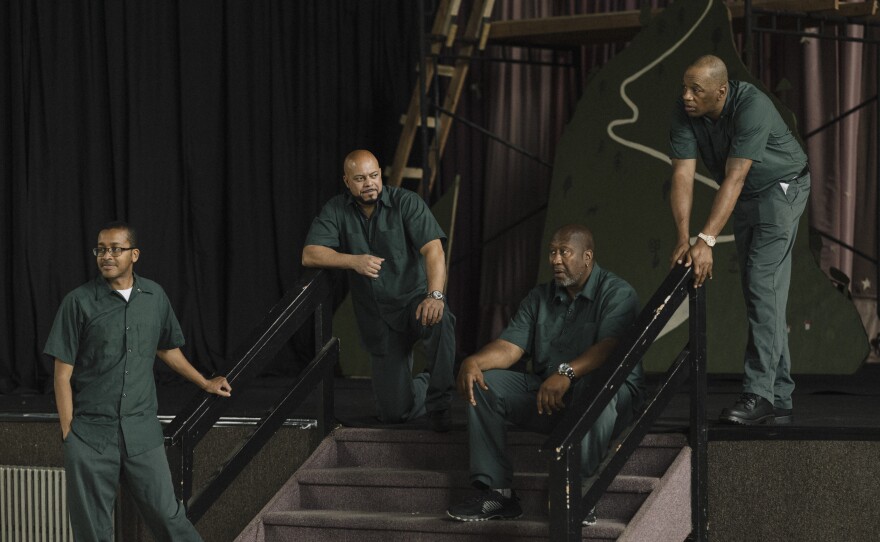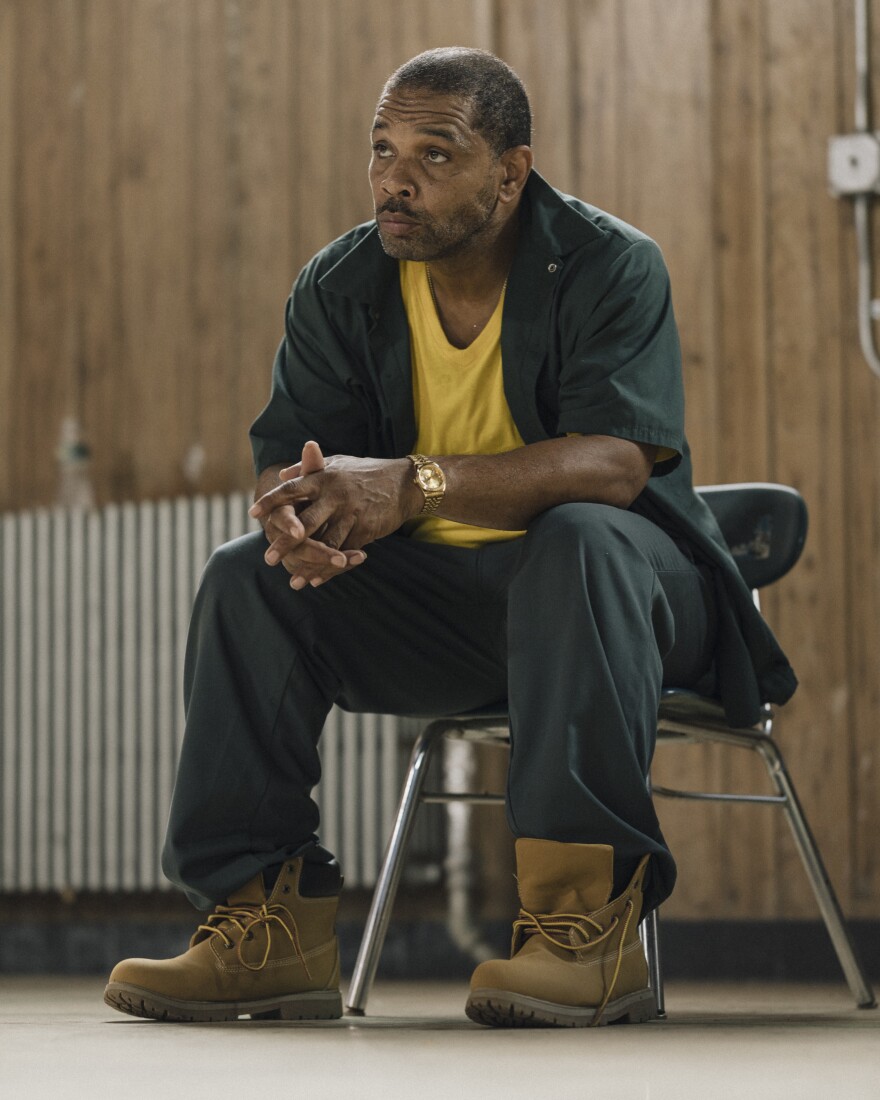The new film "Sing Sing" employs a cast of formerly incarcerated men to tell a true story about the transformative power of art.
I try to go into movies not knowing anything about them. I avoid trailers, production notes and anything that might spoil the film by creating expectations before I see it. So I went into "Sing Sing" not knowing that many of the actors had been incarcerated and were playing variations on themselves. Even without knowing that, the performances felt different. Not just powerful and impressive, but fueled by a fire that comes from real life experiences.

The film is inspired by real stories and people, but dramatized for the screen. Colman Domingo plays Divine G, imprisoned at Sing Sing for a crime he didn’t commit. Divine G finds purpose by acting in and writing productions with Rehabilitation Through the Arts (RTA). The theatre group includes incarcerated men who have worked on productions before and one newcomer (Clarence Maclin playing a character based on him).

Credit: Dominic Leon
The RTA program
Clarence Maclin is an alumni of RTA at Sing Sing Correctional Facility.
"The overall objective for RTA is not to create actors," Maclin explained. "The objective is to create better human beings through art and through productions, and through all these things, we learn valuable life skills and get a lot of insight into who we are and who we can be."
Maclin became part of the steering committee for RTA at Sing Sing. He joined the program after realizing that the actors he had seen in a play performed at Sing Sing were not from the outside but rather were incarcerated men like him. And he wanted to be a part of that.
In the film, he has a scene where he talks about Shakespeare and "King Lear."
His character says, "Some of the things the brother was saying in the book really resonated with me. What did the brother say? 'When we are born we cry because we are born to a stage of fools.' And I said whoever wrote this had to do a bid before."
That reflected a real life connection for Maclin.
"The first time I heard it, I wanted to be able to perform it just because of the way it sounded to me," Maclin said. "It sounded beautiful. It seems like he takes time to paint the picture with his words. I just fell in love with the whole lingo and the performance that can be had with a Shakespeare production. You get to be very bold."

Maclin also gets to perform one of Hamlet's soliloquys and he is brilliant. In fact, that scene made me wish we could see a whole production of "Hamlet" with Maclin and his fellow RTA alums.
To shoot the film, the crew used two decommissioned prisons.
"One of which each of us as prisoners had to come through," Maclin stated. "We all were here before. And I actually had to play one scene when I'm sitting in a cell by myself, and I reach for the script that's actually a cell that was right downstairs from a cell I actually was in when I was in this prison. So it was a lot of apprehension about going back inside, about going and sitting in those same prison clothes. However, the purpose of what we were doing, outweigh all apprehension."
Director and writer Greg Kwedar insisted on using the RTA alums in order to tell the story authentically. In one scene involving a review board, one of the people considering Divine G's case asks him about the RTA program and his acting, and then asks if he is acting now for the review board. That scene really stung and the dialogue comes directly from the transcripts.
The film serves up an inspiring and hopeful portrait of these men, and of the RTA program. Maclin hopes the film will help to humanize people like him.
"I would hope that the people on the outside would understand that the people on the inside are people, are actually human beings," Maclin said. "If you look around in your circle, you may find some of us close to you, some people that's reflective of us. They need the same love, trust. They need the same empathy. They need all of these things poured into them as well in order to become productive and be able to come back to society and do well. I think that they need to understand that we are a lot more than the sum of our mistakes, and we still have the capacity to change and add on to society in a positive way."
"Sing Sing" counters the negative stereotypes with this deeply personal story about the transformative power of art.
Suggested viewing:
"Weeds" (1987)
"Caesar Must Die" (2012, Italy)
"Alive Inside" (2020)
"The Art of Incarceration" (2021, Australia)

This is from the press notes for the film and is something not just film critics might want to consider.
This is a brief guide designed to help with use of inclusive language when discussing "Sing Sing." Based on the real-life program Rehabilitation Through the Arts, the film features a cast that includes formerly incarcerated actors and alumni of the program. Much of the conversation around the criminal justice and carceral systems has traditionally included language that dehumanizes the people impacted by both. We know that words have the power to shape narratives, and we have the opportunity to change those conversations for the better.
LANGUAGE TO USE
Put the person first, before their relationship with the justice system.
Person convicted of a crime
Person who was convicted of a felony
Person who is on parole
Person who is incarcerated
Person who was formerly incarcerated
LANGUAGE TO AVOID
Avoid labeling a person solely by their relationship with the justice system.
Criminal, Offender, Felon, Convict
Parolee
Inmate, Prisoner
Ex-convict / ex-con
The Language Project — From the Marshall Project, a curated collection of writings and resources that examine the human impact of the words we use when discussing criminal justice, the carceral system, and the people impacted by both.





